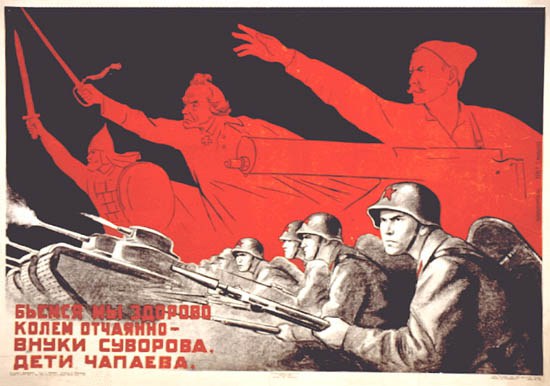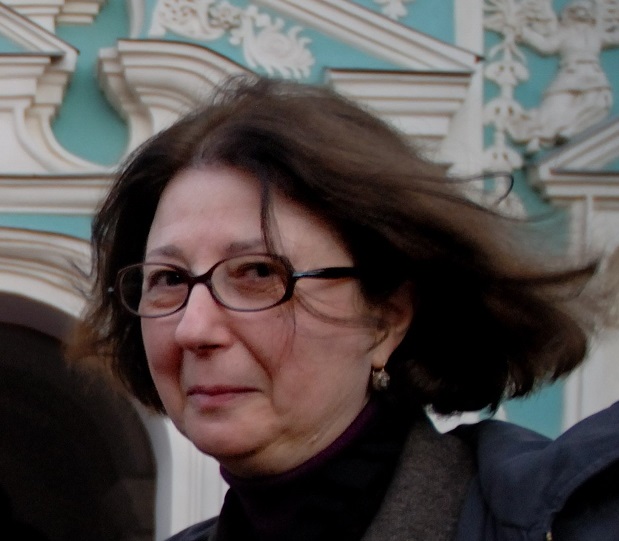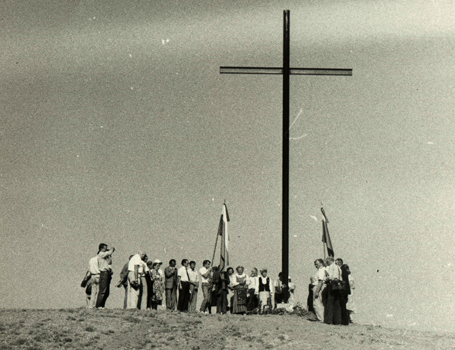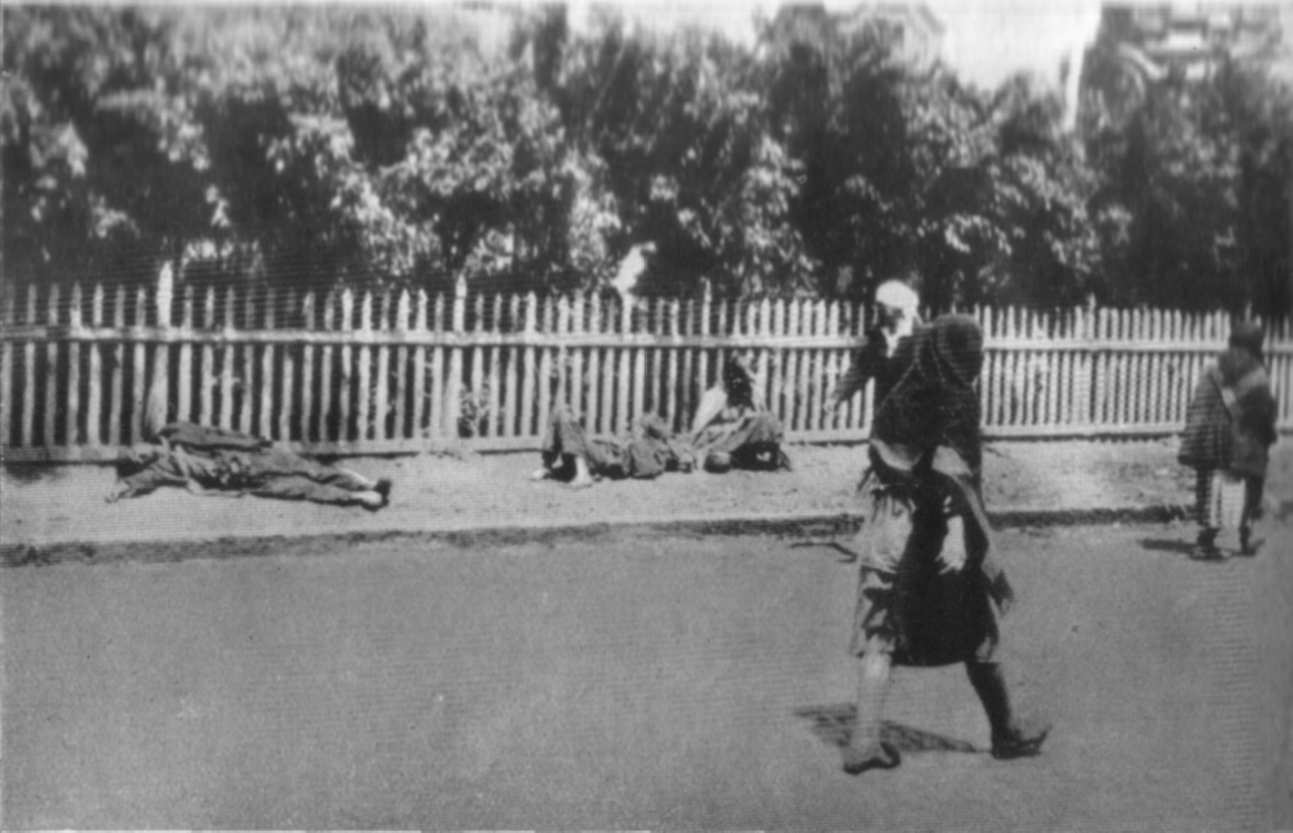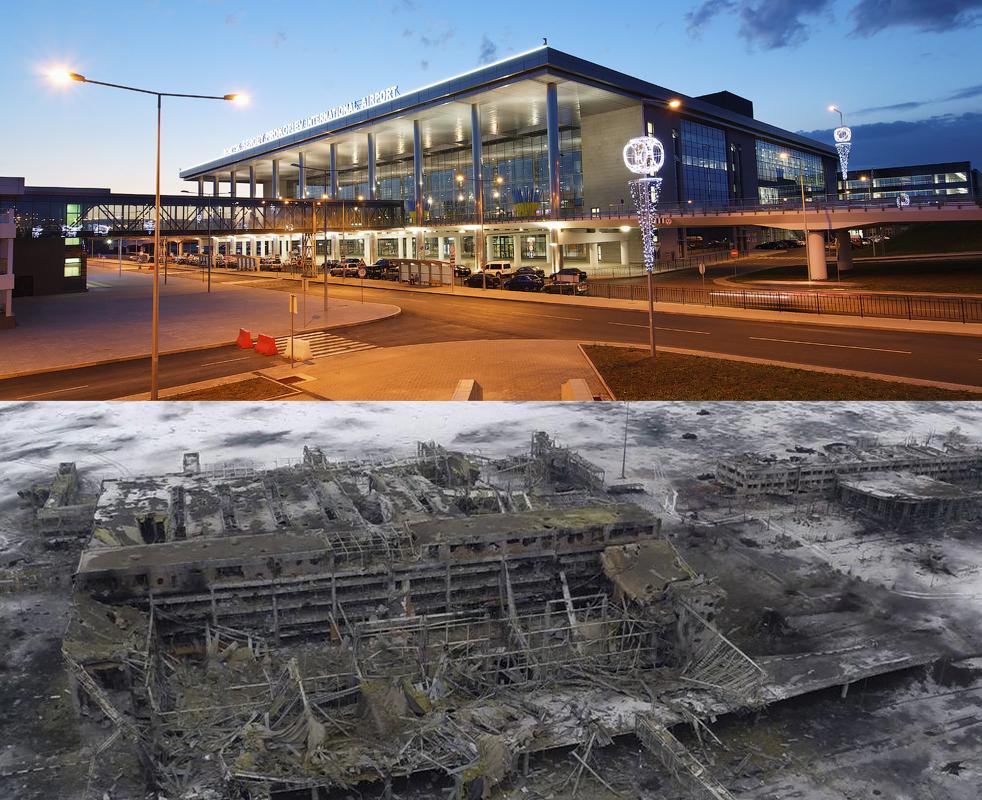Walter Benjamin begins his "Theses on the Philosophy of History” with the description of a mechanical device. It is a puppet, designed in the 18th century to win chess games.

The puppet was presented as automaton, but it was a hoax, since it concealed a hidden humpback dwarf who was a talented chess player. In a similar way, Benjamin demonstrates how historical materialism is guaranteed to win, since theology is hidden in its constructed machine. The Russian-Ukrainian war brings back to life the metaphor of a machine that wins by fraud, exploiting religious metaphysics. Russian propaganda uses a concept of the victory over Nazism as evil, constructing a lifeless shell of the "Great Patriotic War" over it. And then this mechanical construction becomes a weapon and kills people in eastern Ukraine. And this is not a metaphor.
Just to remind – in March 2014 the entire Crimea was filled with posters that on one side had of the outline of the peninsula as a background for the swastika, while on the other side the outline was painted in the colors of the Russian flag. It was an illustration of a choice in the pseudo referendum that veiled the Russian annexation of the peninsula. The first annexation of a territory in Europe after World War II was presented as a struggle against "fascism."

At the same time, Russian mass media launched a furious information campaign. In every manner they endlessly repeated a statement that the "fascists" seized power in Kyiv and their armed "punitive" troops were going to Donbas and southern Ukraine to kill civilians because they speak Russian. Such a powerful propaganda caused hysteria that left the majority of the population without caution, common sense, and ability to communal organization.
One more important thing to remind: according to surveys, in January 2014, the majority of Donbas residents had seen their future in Ukraine and known nothing about "Novorossiya." Propaganda of a "struggle against fascism," discourse and trappings of the "Great Patriotic War" made the majority of Donbas residents divided and passive, when armed groups, sent from Russia, carried out the first attacks on the government offices and murdered state officials.
Further, actions of terrorist groups and the undeclared Russian war against Ukraine have been legitimized mainly through the terms of the "struggle against fascism" and an obligation to be a decent successor of the "Great Victory." The St. George Ribbon, reports about "people's militia," "miners and kolkhoz workers " that repair tanks of the WWII and fight against the "punitive troops" – they all are aimed at symbolic justification for crimes that took lives of thousands and thousands of people.The "Great Patriotic War" is a battle between good (the USSR) against the absolute evil ("fascism")
Why did the old propaganda puppet-machine prove to be so effective? The secret is in its design. The "Great Patriotic War" is a special war. It is a battle between good (the USSR) against the absolute evil ("fascism"). Victory in this war saved mankind, but evil can restore its power any time. Despite the "Great Victory," the war is never over, because its outcome is always in danger of reassessment. To charge opponents with an intention to "reassess the outcome" of the war has been the most common twist of Soviet and now Russian diplomacy.
To prevent spoiling the epic transcendentality and messianic message, this concept rejects history. The background of this war is never described as a rationale of political or economic causes and effects, formed at a certain time and in a certain place. Every introduction to a section on the "Great Patriotic War" in textbooks was always an example of vagueness and lack of details. It is no accident that the USSR so ardently refuted the fact of signing a secret protocol of the Molotov-Ribbentrop Pact. Joining the Second World War as a German ally threatened to break the entire Soviet propaganda machine.
During the Soviet times, it was a desire of capitalism in its most aggressive phase of imperialism and fascism to destroy the first ever state of workers and peasants that was declared as a cause of the war. In nowadays Russia, it is eternal hostility of the evil forces toward Russia. Actually, for Russian propaganda the current war is one of many episodes of the West’s struggle against the eternal Russia, alongside support of False Dmitrii or Napoleon’s campaign.
It is important that the concept of the "Great Patriotic War" does not connect the enemy ("fascism") to space and time. Nazi Germany, Fascist Italy, far-right conservative Hungary or Slovakia, monarchical Romania until it switched to the anti-Hitler coalition – they were all "fascists."
The war was over, but the struggle against "fascism" continued. Creation of the Soviet "zone of influence" in Eastern Europe after the Yalta conference, nationalization of industry and land in Soviet satellites, a ban on both right and social-democratic ("social fascist") political parties - it was also the struggle against "fascism," eradicating preconditions of its emergence. The post-war fighting with national-patriotic underground - it was also fighting against "Nazis and their mercenaries." Aiming at the absolute leadership in the post-war communist movement, which became a propaganda war between the USSR and Yugoslavia, was also presented as a continuing struggle against fascism. Competing for influence in Asia, Africa, and Latin America was also described in terms of the struggle against fascism: political regimes that did not satisfy the Soviet Union, were not accidentally called "fascist juntas."
Fascism has become an empty signifier. It has been conventionally used to describe a phenomenon, about which we only know that it is an absolute evil and danger to all mankind. That is how its unlimited potential of demagogic use has been created.
The concept has an important element -- the "nations/people”. All nations, oppressed by the Nazis, want liberation. But they can achieve it only by fraternal assistance and support of the Soviet/Russian people. Of course, the Soviet Union had allies during the WWII. But the US and the UK are to blame for indulging the aggressor and the outbreak of war. And they entered the war only after the Soviet army actually had won it. The propaganda machine needs figures of the allies only to declare the decisive role of the USSR in Yalta and Potsdam and agree to borders and influence that the USSR gained.
The puppet-automaton mourns Ukrainian people oppressed by the Nazis and describes how they await their liberation. Capturing the Donetsk or Luhansk oblasts is not the aim of the war. In the language of the "Great Patriotic War," the victory over fascism means returning all Ukraine under control of the Kremlin.
But fascism is evil beyond time and space, so it also operates in Europe. The automaton does not accidentally say about the Nazis in the Baltics. Neither it accidentally says about the lack of independence of the European Union, the dictate of the US and NATO, and European nations that are aiming to get rid of the dictate. Who else can help them, if not successors of the "Great Victory”? So the "Great Patriotic War" can become a weapon even against Europe.
Perhaps, today the puppet-automaton is not such an invincible machine, as in the times of Togliatti and Thorez. But we see that the memory of the Second World War in the West and Eastern Europe is too different and still divided. The West’s memory underestimates the complexity of the events in Eastern Europe and often describes them in schemes that resemble the scheme of the "Great Patriotic War." The Kremlin understands this and wants to use the memory to split Europe. I hope this plot will fail. Russian aggression against Ukraine gives Europe a chance to make serious political conclusions about the history and the current situation. The list of participants of the WWII celebration in Moscow will demonstrate who and how uses this chance.
[hr]Other proceedings from the conference "Usage of the topic of WWII in the Russian political discourse
":
Memory of the Great Patriotic war in Russia’s expansionist policy
Occupation of Crimea repeats Latvia’s occupation by USSR
The “Great Patriotic War” as a weapon in the war against Ukraine
Russian media operates by law of war, tapping into Great Patriotic War myth
Soviet myths about World War II and their role in contemporary Russian propaganda


